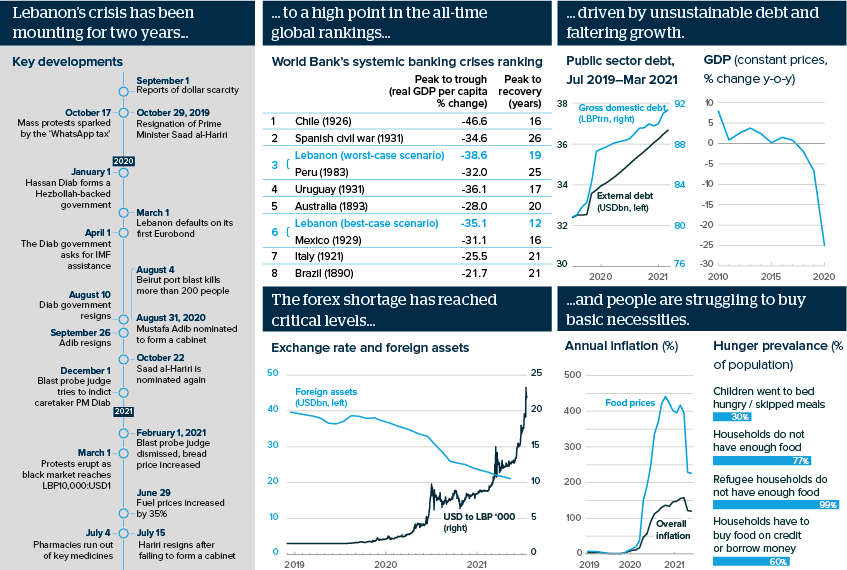Lebanon could soon reach a breaking point
The resignation of the prime minister-designate cuts off the last open route to restructuring and financial assistance
Source: IMF World Economic Outlook, Thomson Reuters, Lebanon’s Central Administration of Statistics, WFP, World Bank, lirarate.org, UNICEF
Outlook
Political forces will relaunch efforts to find a new Sunni candidate for prime minister, but credible figures will be cautious about accepting. Without a reformist government, the country will only receive humanitarian aid. Blame-trading for the failure to form a government will increase sectarian tensions, ahead of elections due in early 2022.
Having exhausted its reserves, the central bank will no longer provide subsidised dollars for the import of many basic goods. The prices of bread, fuel and medicines will rise further, where they are available at all, and power cuts could get even worse. Long-term high inflation will worsen food insecurity and poverty, especially among the large refugee population.
Impacts
- Both refugees and Lebanese citizens will step up efforts to emigrate to Europe, including by dangerous boats to Cyprus.
- Access to foreign currency will be the key determinant of relative prosperity.
- Violent protests, crime and looting are likely to become more common, especially in disadvantaged areas.
- The crisis will have a worsening knock-on impact on neighbouring Syria, which will also see food and energy shortages.
See also
- Lebanon’s Pandora Papers prominence will change little - Oct 6, 2021
- Lebanon’s possible new government would still struggle - Aug 12, 2021
- Lebanese blast anger and rising hunger risk violence - Aug 4, 2021
- Syrian-Lebanese food shortages will drive instability - Aug 3, 2021
- Lebanese parties will struggle to agree a cabinet - Jul 26, 2021
- Saudi Arabia will hold back from the Lebanese morass - Jun 30, 2021
- Even if politicians deal, Lebanon faces a bleak future - Apr 7, 2021
- Lebanon’s economy has further to fall - Feb 9, 2021
- More graphic analysis
